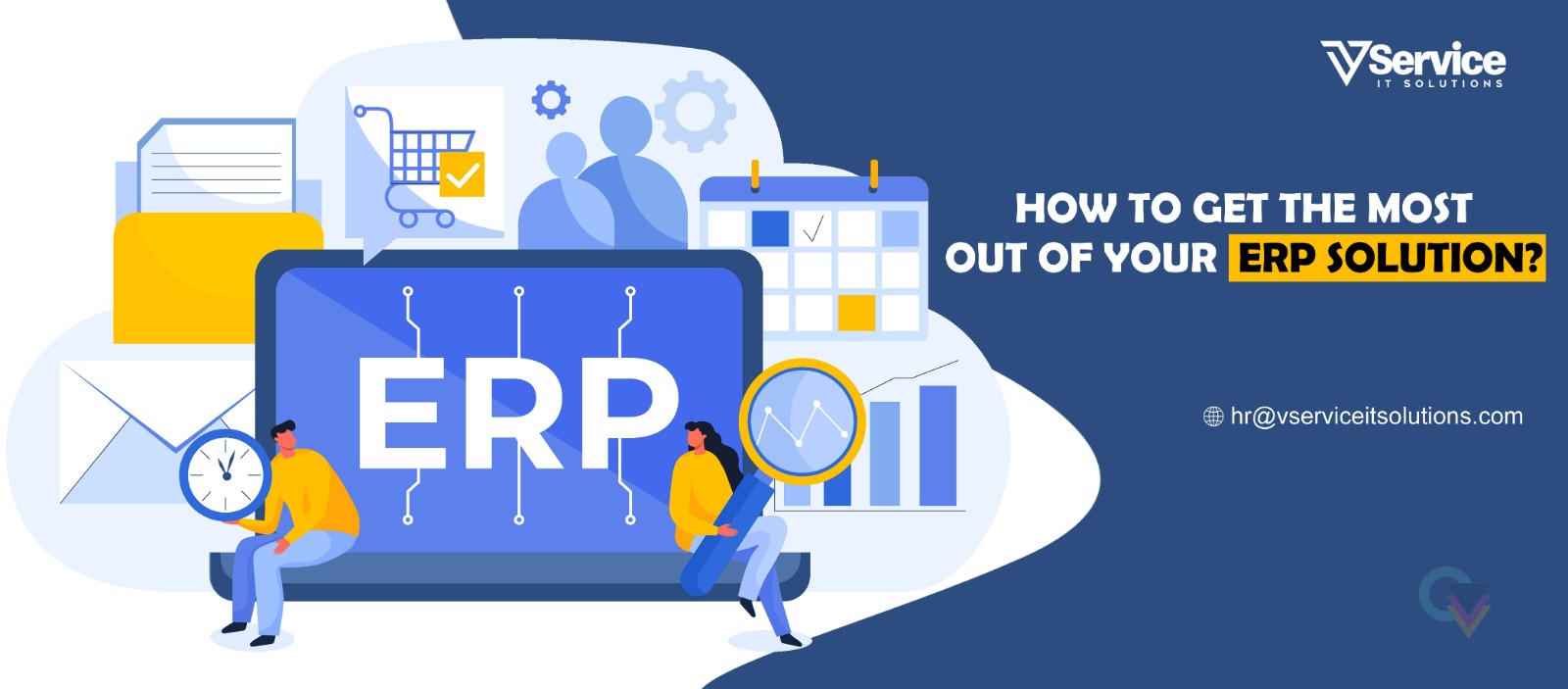How to Get the Most out of Your ERP Solution?

Today, companies use enterprise resource planning (ERP) systems to organize and optimize their daily operations and realize their maximum potential. Modern ERP solutions have evolved beyond simple management software and are now more than just software; they are an integral part of a business’s long-term success strategy.
A modern custom ERP solution can centralize data from your organization’s departments. When implemented correctly, an ERP can provide the information you need to make excellent decisions, improve company-wide communication, and keep all stakeholders engaged. Utilize these strategies for optimizing your ERP software to maximize your return on investment.
Future-proof Your Enterprise Resource Planning System
In the 1990s, when ERP systems first appeared on the market, few could have predicted that they would expand to incorporate so many strategic assets. Many legacy systems that have functioned well for years are beginning to deteriorate, and the companies that once utilized them recognize the need for more flexible ERP software. ERP systems require increased bandwidth, cloud storage, and integration software to provide real-time insight.
To optimize the value of your ERP investment, your ERP system’s capabilities should expand in tandem with the business. Outgrown your current system is a positive sign that your business has grown substantially.
There are now cost-effective methods to future-proof your ERP system and prepare your business for robust future expansion:
Expand your capacity: Reliable bandwidth is required for your business to maximize the cloud capabilities of your ERP system.
Utilize data inventory estimation: Your ERP system already accumulates data on your current inventory. Utilize this information to make an accurate financial forecast and estimate the data inventory you’ll need in the following quarters to maximize the use of your ERP software.
Employ the cloud: Today; the cloud enhances the productivity of tens of thousands of businesses by providing them with real-time insights into their current developments. By leveraging the cloud, you can future-proof your ERP and always receive cutting-edge updates first.
Document management: By documenting your company’s operations, you can determine which departments require assistance and which are thriving. Workflow documentation enables your company to identify new opportunities for ERP integration and invest in technology to address potential system bottlenecks.
Optimal Use of Your ERP
Your ERP solution is a crucial component of your manufacturing business, and it is linked to your business processes, making your ERP provider a long-term business partner.
Purchasers focus primarily on the product and the implementation phase when purchasing an ERP. Due to the high cost of acquiring a new ERP system, you will have the same system in your business for years or even decades after the initial purchase. A strong partnership with your ERP provider, particularly one that encourages continuing education, is indispensable.
Over time, your ERP provider will assist you in maintaining your system knowledge as employees come and go, develop your ERP expertise, and tackle new challenges. To get the most out of your system, you must continually invest in learning and training to become more proficient with your ERP and bring new employees up to speed.
In recent years, the manufacturing industry has been plagued by hiring shortages, resulting in increased job churn and the need for manufacturers to train new hires rapidly. Over the next decade, millions of new manufacturing positions will be created, indicating that this issue will persist.
Your ERP system can help you train and prepare new employees for the shop floor. Including funds (and time) in your budget for continuing education is a wise decision. This will ensure that everyone in your shop is on the same page and that you maintain a consistent ERP knowledge and proficiency level.
Likewise, the features and tools you require from your ERP will evolve. For instance, if you implemented your ERP a few years ago, the material shortages and supply chain disruptions affecting the industry were likely not a concern. However, they are now.
Your ERP system can assist you in overcoming and mitigating these new obstacles, but you must learn how to use it. A strong partnership with your provider and an easily accessible training system can help you get up to speed fast on new features and achieve long-term success.
Conclusion
Your ERP provider can assist you in achieving your desired goals. Your ERP provider can examine the health of your ERP system regularly to determine if it meets your needs. Your ERP provider can also discuss your vision and objectives, assist you in identifying potential problems or roadblocks, and collaborate with you to develop an action plan and determine which features must be implemented to achieve your goals.
Continuous feedback with your ERP provider also allows you to inform them of any new functions or features your business requires, which can aid in product development and enables your ERP provider to create the tools that their customers want.
Book a discovery call with us to learn more about optimizing your ERP solutions.
Author :
Madan
Head of Sales and Business Development, responsible for ensuring optimal company performance and keeping track of client service level agreements. And this is simply my daily routine!
I enjoy planning and implementing effective maintenance to assure compliance with all disaster recovery plans while I am not working on my next project. I support technical employees in analysing and resolving difficulties in order to meet all objectives, designing and maintaining all IT processes using standardisation techniques, and maintaining all documentation for various tasks.
Latest Blogs
Get New Solution for your Problem
Still can’t find answers to your challenges. Get in touch with our experts
